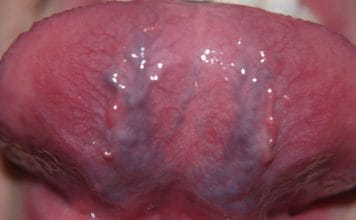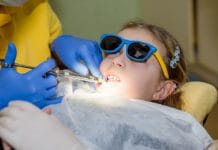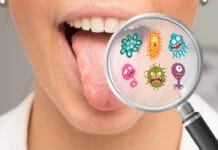Scientists have discovered a link between poor oral health and several gastrointestinal cancers. The study, which was published in the United European Gastroenterology Journal, provides strong evidence that lackluster dental health can significantly increase someone’s chances of developing liver cancer and other serious illnesses in their lifetime.
About Liver Cancer
The liver is a necessary organ that helps eliminate bacteria from the human body. Liver cancer occurs when the DNA inside the organ starts to mutate and form a tumor, which can eventually lead to organ failure. Hepatocellular carcinoma is the most common type of liver cancer, closely followed by hepatoblastoma and intrahepatic cholangiocarcinoma.
According to the American Cancer Society, liver cancer is one of the leading causes of death around the world – especially in Africa and Asia. An estimated 800,000 people are diagnosed with liver cancer each year, and around 700,000 ultimately succumb to the disease. It’s the sixth largest killer in the European Union, and 42,000 Americans are diagnosed with the disease each year.
Patients who are living with liver cancer may experience a wide variety of symptoms that can range from mild to severe. Some of the most common symptoms include:
- Weight loss
- Abdominal pain
- Yellow skin
- Nassau
- Fatigue
- Vomiting
- Chalky white stools or bowel movement
Certain risk factors can also increase a person’s chances of eventually developing liver cancer. For example, high levels of alcohol consumption, diabetes, hepatitis B virus (HBV) and hepatitis C virus (HCV) may take a toll on a person’s health and lead to severe liver damage and cancer over a period of time.
About the Dental Study
The lead researcher of the study is Dr. Haydée WT Jordão, a noted professor at the Centre for Public Health at Queen’s University Belfast. He wanted to conduct the study so he could gather further evidence supporting a causal link between poor oral health and gastrointestinal illnesses such as liver and colon cancer.
Dr. Haydée WT Jordão collaborated with a team of people to analyze the health records of over 469,628 patients living in the UK over six years. The scientists analyzed the patient’s self-reported data and created statistical models to see if there was a relationship between certain types of cancer and bad dental health.
A little over 4,000 of them developed gastrointestinal cancer during that time. Dr. Haydée WT Jordão reported that 13% of the patients with gastrointestinal cancer experienced bleeding gums, mouth ulcers, loose teeth, missing teeth, and other signs of poor oral health. Economically unstable, young women with unhealthy diets were also more likely to develop different types of gastrointestinal cancer in the six-year span. This information is alarming because the organ is in charge of filtering bacteria out of the body. When it is damaged or not functioning, it can lead to a build-up of harmful bacteria.
In Conclusion
Ultimately, Dr. Haydée WT Jordão believes more research should be conducted in the future to investigate further why some types of oral bacteria like Fusobacterium nucleatum is more closely connected to liver cancer than other digestive cancers. Dr. Haydée WT Jordão also notes that scientists should look into how a patient’s entire microbiome can affect their overall health.
Since poor oral health can lead to different medical conditions like liver cancer, it’s important that dental hygienists educate their patients on why it’s important for them to take care of their teeth. Concerned patients can decrease their chances of developing liver cancer and other gastrointestinal diseases with an improved dental hygiene routine, diet, and physically active lifestyle.

















